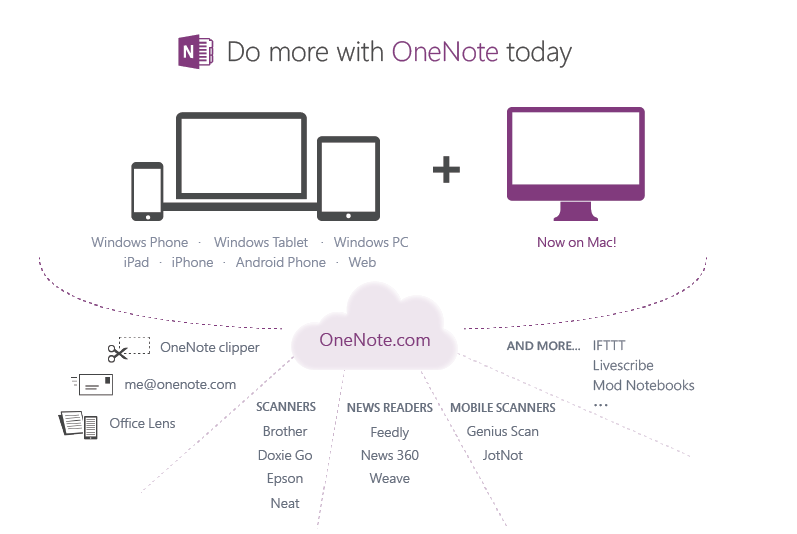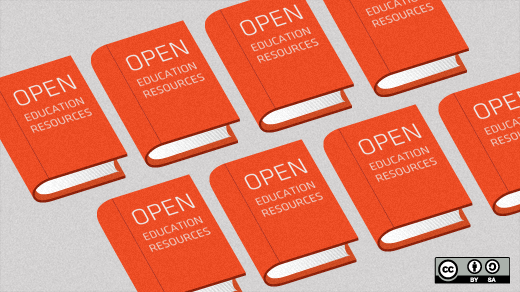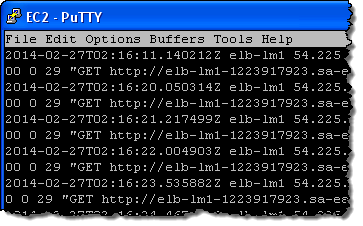Using Git to manage a web site – http://toroid.org/ams/git-website-howto
Deploy websites using Git – the easy way | Deadly Technology – http://deadlytechnology.com/web-development/deploy-websites-with-git/
#CALIcon14 explained in 3 Tweets
#CALIcon14 is the 24th annual CALI Conference for Law School Computing, June 19-21, 2014, Harvard Law School http://t.co/e7vpL4WMkJ @caliorg
— Elmer Masters (@emasters) March 27, 2014
#CALIcon14 brings together 300+ faculty, librarians, technologists from 100+ law schools for 55 sessions over 3 days http://t.co/e7vpL4WMkJ
— Elmer Masters (@emasters) March 27, 2014
Just over a week to submit session proposals for #CALIcon14. Deadline is April 4, so get yours in now. http://t.co/cTEi6nmHki @caliorg
— Elmer Masters (@emasters) March 27, 2014
Microsoft Announces OneNote For Mac, Makes It Free Everywhere, Adds An API
Today we’re excited to complete that story with three major developments:
- OneNote for Mac is available for the first time and for free. With this, OneNote is now available on all the platforms you care about: PC, Mac, Windows tablets, Windows Phone, iPad, iPhone, Android and the Web. And they’re always in sync.
- OneNote is now free everywhere including the Windows PC desktop and Mac version because we want everyone to be able to use it. Premium features are available to paid customers.
- The OneNote service now provides a cloud API enabling any application to connect to it. This makes it easier than ever to capture ideas, information and inspirations from more applications and more places straight into OneNote, including:
- OneNote Clipper for saving web pages to OneNote
- me@onenote.com for emailing notes to OneNote
- Office Lens for capturing documents and whiteboards with your Windows Phone
- Sending blog and news articles to OneNote from Feedly, News360 and Weave
- Easy document scanning to OneNote with Brother, Doxie Go, Epson, and Neat
- Writing notes with pen and paper and sending them to OneNote with Livescribe
- Mobile document scanning to OneNote with Genius Scan and JotNot
- Having your physical notebooks scanned into OneNote with Mod Notebooks
- Connecting your world to OneNote with IFTTT
Go to www.onenote.com to get OneNote for free for your Mac, PC or other devices, and try out the new OneNote service connected experiences.
via OneNote now on Mac, free everywhere, and service powered | Office Blogs.
This is big news. Microsoft is giving away its OneNote application and adding a Mac version into the product mix. I’ve installed it on Mac and Windows and it is a close competitor to Evernote.
Some quick observations
- The Mac app has fewer features than the Windows version. For example the recording features are missing on the Mac. The insert dropdown on the Mac only allows for a few basic inserts like table, date, and picture. Windows allows for many objects to be inserted into the notebook.
- Synchronization between devices and the web is very quick. This makes shared notebooks useful. Notebooks are shareable in view only or view/edit mode. Folks without OneNote view the shares through the OneDrive website.
- Linux users can get in on the fun too. I was able to view, edit, and create notebooks after logging on to the onedrive.live.com website. The edits and notebooks are available to the desktop clients.
Overall this looks like a good move from MSFT that will likely increase use of OneNote. I would expect see much more adoption of OneNote in law schools because it compliments their MS Office installed base quite well.
2013 Guide to Running an Open Education Hackathon
Education and open science hackathon guide | opensource.com. – This article is from March 2013 and it provides some good ideas for organizing and running an open education hackathon. A course sprint that bring s subject matter experts together with tech and design people sounds like a good way to jump-start an open education resource project.
AWS Opens Access Logs for Elastic Load Balancers
Today we are giving you additional insight into the operation of your Elastic Load Balancers with the addition of an access log feature. After you enable and configure this feature for an Elastic Load Balancer, log files will be delivered to the Amazon S3 bucket of your choice. The log files contain information about each HTTP and TCP request processed by the load balancer.
via Amazon Web Services Blog: Access Logs for Elastic Load Balancers.
This has been a long time coming but it is a welcome development. I’m looking forward to plowing through those access logs and running my own analysis on them.
LIME Is A Web Based Text Editor That Helps XMLize Your Legal Docs
LIME is an extremely customizable web based editor that guides the user through the markup of non structured documents into well formed (optionally valid) structured XML document compliant to the language plugin chosen by the user. The LIME editor is an open source software and relies on many open source technologies. LIME is currently under development by the CIRSFID and the University of Bologna. Read the documentation page for more information about LIME and the team page for more information about the LIME team.
via About LIME | LIME.
The editor is designed to support conversion of non-structured legal documents into Akoma Ntoso XML. The editor’s modular structure allows you to add other plugins so that it can support a range of XML schemas including various national versions of Akoma Ntoso and more general markup such as TEI. You can find the code on Github if you want to take it for a local spin.
I’m interested in taking a look at this to see if it can work with US court opinions. Perhaps it will give me an editor that I can use to convert opinions into that court opinion DTD I put together so many years ago.
Suggestions on How Non-Programmers Can Contribute to Techie Projects
I get asked a lot by people who are interested in helping out open source projects, but have absolutely no programming skills. What can they do? Well, here’s a few ideas how non-programmers can contribute to open source projects.
It is worth noting that it is best to contribute to software that you actually use yourself. That way you feel the benefits.
via How non-programmers can contribute to open source projects | opensource.com.
There are many ways to contribute to an open source project that go well beyond being a crack programmer in the language of the day. Indeed many of the suggestions cover ground that many Teknoids are already familiar with in other contexts. We love documentation, for example. Here’s the list:
- Use the product
- Bug test
- Write documentation
- Translation
- Evangelize
- Donate
- Be professional
It is possible to help out other projects and organizations, like CALI, using these suggestions. For example, you could help out CALI by using and recommending our resources, reporting bugs you find, or write some docs on how your law school community could use CALI resources. And let us know if you’re doing any of these, we appreciate all of the support we get.
OwnCloud 6 Beta Introduces ownCloud Documents, Collaborative Editing for ODF Docs
I’m talking about collaborative editing! This feature is implemented in an app called “ownCloud Documents” and will be part of ownCloud 6. People can view and edit their ODF text documents directly in the browser, inside your ownCloud. Another cool thing is that you can invite users from the same ownCloud to work collaboratively on the same document with you. Or you can send invitation links by email to people outside your server to collaborate with you on the document.
via own clouds, social networks and free desktops: Welcome “ownCloud Documents”.
If the addition of collaborative editing features to ownCloud actually works, this is going to be a pretty big breakthrough in the the open source space. It will in effect create a system that will replicate the features of Dropbox plus Google Docs, all in space that is user controlled. It provides the potential for creating self-hosted private and secure collaborative and storage space for groups in a way that just can’t be easily accomplished now.
I’ll be trying the features of ownCloud 6 beta out and will let y’all know how it goes.
MC Law Launches Deans Database
This site provides information about law school deans. Ever wondered who is the longest serving dean? Which current dean has held the most deanships? How many deans were former law professors or judges? What schools a dean attended? Who were the former deans at a particular law school?
The RDD is designed to answer these questions and to provide information to those who take an interest in law school deanships. This database may be used by dean search committees, university officials, or members of the public and is available without charge.
via Rosenblatt’s Deans Database.
Rosenblatt’s Deans Database (RDD) a new and interesting resource for those interested in keeping up with the world of Law School Deans. It aims to provide profiles of current deans as well as historical data for each law school. Data is provided by the law schools. I hope it stays up to date since it is kind of handy to have all that data in one place.





